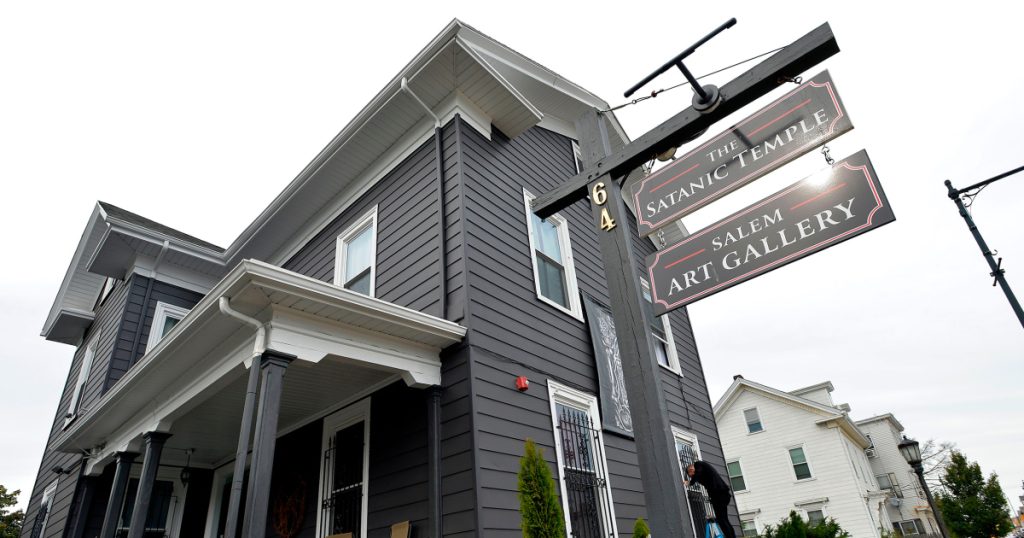Authorities in Massachusetts have arrested Sean Patrick Palmer, an Oklahoma man, for allegedly throwing a pipe bomb at the headquarters of The Satanic Temple, a group based in Salem. The group advocates for secularism and individual liberties, clarifying that its members do not worship Satan. Palmer has been charged with using an explosive to damage a building and could face up to 20 years in prison and a fine of $250,000 if found guilty. The incident occurred on April 8 when surveillance cameras captured a man wearing a face covering, tactical vest, and gloves igniting an improvised explosive device and throwing it at the main entrance of the building before fleeing the scene. The bomb partially detonated, causing minor fire damage.
The bomb, which was made from a piece of plastic pipe, was found to contain a DNA sample extracted from a single hair on the explosive device. Authorities also discovered a six-page note in a flowerbed near the attack addressed to “Dear Satanist” and urging repentance, which they believe was written by Palmer. Surveillance footage showed a black Volvo registered to Palmer driving erratically in the area before and after the incident, and it was revealed that he had recently purchased PVC pipe from a home improvement store in Oklahoma. Authorities suspect that Palmer’s actions were motivated by his social media comments, which echoed the sentiments expressed in the note found at the scene of the crime.
Palmer, who is due to make an initial court appearance in Oklahoma, was not represented by a lawyer as of Wednesday. Several phone numbers associated with him were out of service. The U.S. Attorney’s Office in Massachusetts is leading the investigation into the case, working in conjunction with the FBI. The incident has raised concerns about potential acts of violence targeting religious or ideological groups, particularly those that promote beliefs contrary to traditional norms. The attack on The Satanic Temple highlights the need for vigilance in identifying and addressing threats to organizations that advocate for marginalized or unconventional perspectives.
The Satanic Temple, which has been the target of harassment and threats in the past, emphasizes its commitment to promoting rational, scientific, and individualistic values rather than engaging in worship or ritualistic practices associated with Satanism. The group’s advocacy for religious freedom and separation of church and state has garnered both support and opposition from various quarters, with some viewing it as a necessary counterbalance to religious dominance in public discourse and others perceiving it as a threat to traditional beliefs and values. The attack on their headquarters underscores the challenges faced by organizations that challenge cultural or religious norms, as well as the potential dangers posed by individuals who resort to violence to silence dissenting voices.
As the investigation into the pipe bomb attack unfolds, authorities are working to piece together Palmer’s motives and connections to the incident. The discovery of his DNA on the explosive device, along with surveillance footage and social media posts linking him to the crime, suggests a premeditated and targeted act of violence. The implications of targeting a group like The Satanic Temple, which advocates for marginalized voices and challenges societal norms, raise broader questions about the boundaries of free speech and the limits of tolerance in a pluralistic society. The case serves as a reminder of the importance of safeguarding the rights of all individuals and groups to express their beliefs and opinions without fear of intimidation or violence.


